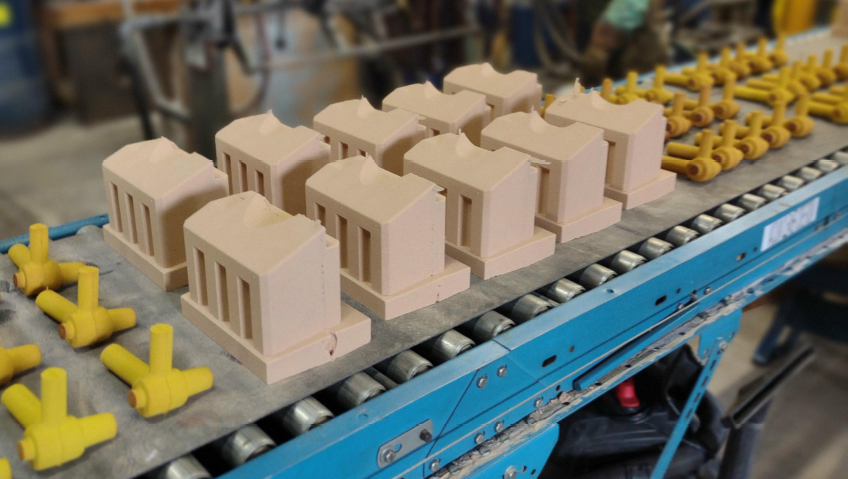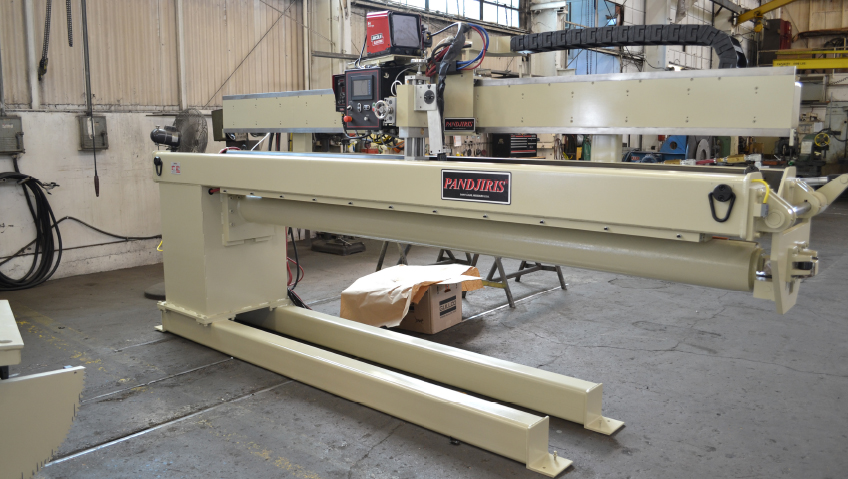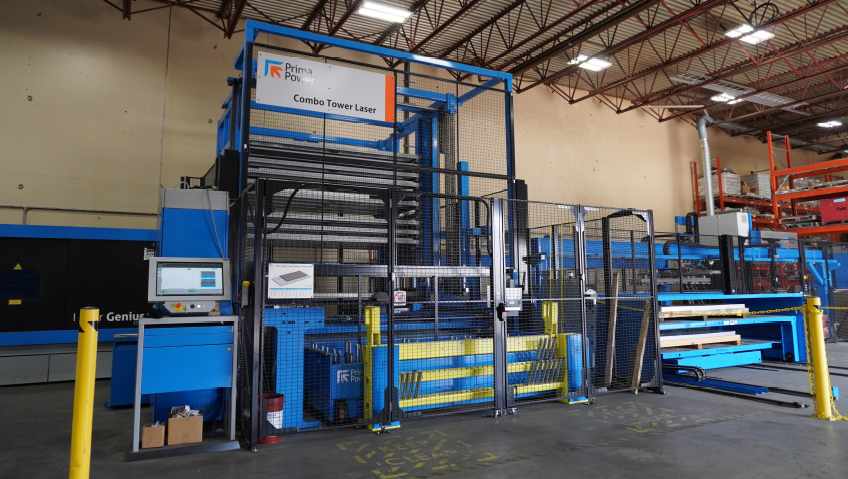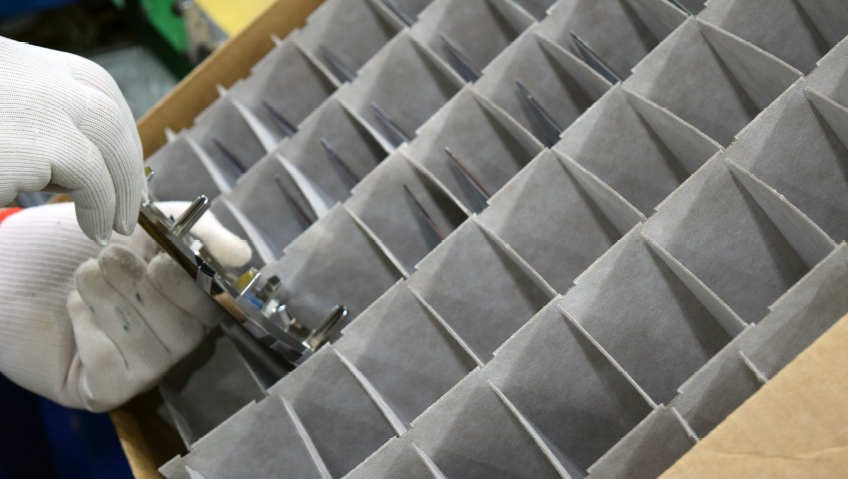Supplying everything necessary to transport and protect packaged gas cylinders, SafTCart, Inc. is a leader in quality fabrication with its roots firmly set in the Mississippi Delta. Judging by its increasing output and impressive global distribution covering all of the United States, Mexico, Canada, and beyond, the Clarksdale, Mississippi-based company is the solutions provider to a specialty field requiring quality truck beds and trailers, cylinder carts, gas canister cages, and pallets.
Recent expansions and improvements to SafTCart’s 130,000-square-foot facility ensure consistency with added capacity and capabilities. Despite these upgrades, growing demand will soon see another expansion phase set to launch the company into an entirely new trajectory in another two years or so.
As an anchor business in Clarksdale, Mississippi, this is good news for the local community too. “We believe in investing in our people and community—another reason our employees continue to call SafTCart home. [We were] named ‘Most Admired Business in Clarksdale, Mississippi’ five years in a row,” says Jim Herring, Vice President. Its local popularity stems from its founder, who calls the town his charity of choice.
The company’s team of around 130 people is known for long tenures that, in some cases, reach nearly a quarter of a century. “We take care of our folks because they take care of us,” Herring says, and there was no time more telling than the past three years. Everyone pulled through the pandemic, and today, the company is doing better than ever. After an economic watershed event like COVID-19, you know that business is good when a company’s leadership says it remains stunned by its unexpected and continued growth.
Always looking to improve, SafTCart recently made significant investments in laser equipment to elevate its ability to tighten component tolerances and increase its fabrication output. Today, the new laser machines also reduce waste, ensuring optimal use of materials. Once computer-assisted designs are complete, a laser accurately renders the desired components in a range of required sizes from full metal sheeting. Following that process, computer numerical control (CNC) machines can shape components like cart floors according to design. Once all parts are cut and bent into shape, welders attach the pieces with their signature finesse.
“Many years ago, we used to outsource a lot of parts, like cradle tops and pallet bottoms and things like that, from service companies in the Memphis area and beyond. It’s pennies to the dollar compared to what we used to spend when we would outsource [this work],” says Herring, citing an example of spending in the region of $17 to $20 for a pallet component called a runner before implementing the company’s state-of-the-art component fabrication setup.
In addition, its new laser technology makes the final product a lot more attractive thanks to those tighter tolerances. Once truck beds and trailers are assembled and galvanized to add at least a decade to their lifespan, they are sent across the United States and abroad, something of which the company is very proud. As a result of the high demand for its truck beds, its most recent investment was an expansion of its truck shop—which may see further improvements soon, as this part of the business is accelerating fast.
Going from a maximum of four truck beds at any time, the company’s capabilities now allow ten assemblies to run in tandem, labor permitting. With two sister companies, National Metal Products, acquired in 2000, and Carolina Piping Services, bought in 2017 in Charlotte, North Carolina, providing quality metal components, the supply pressure is significantly relieved.
“We have never adopted the cost-leadership marketing model. We have never been the cheapest, and we don’t sell ourselves that way; we don’t undersell ourselves. We let everybody know that, when you buy from us, you get quality,” says Herring.
The company was established in the 1960s by Herring’s father-in-law Jimmy Walker, Sr., who at 87 is still busy coming up with innovations. SafTCart was born of his frustration at being unable to find a well-built cart to hold torch-cutting equipment. Walker went from auction to auction buying welding equipment and gathering knowledge before teaching himself to build gas carts—followed by several decades of building those alongside a legacy firm.
Herring has been with the company for 25 years. “I’ve enjoyed it. The welding industry is a group of decent folks,” he says of all the friendships he and his wife Melinda have made over the years.
Today, the company continues to honor Walker’s commitment to excellence. As such, on the rare occasion that some damage occurs due to shipping or similar, replacements are arranged for. “We are proud of what we make. We stand behind it. SafTCart provides a quality product every time. As the founder stated many years ago, ‘If not satisfied, return it collect for a full refund.’ We stand behind that principle. We believe in what we build,” Herring says.
Starting with just about nothing, the company’s first conveying system was set up inside a school that had been unused for many years before being bought by Walker. Not long after that, the outfit expanded and needed new premises. As luck would have it, an enormous cotton bale shed came up for sale. At the time, people were teasing Walker that there was enough space to rent out. Instead, what happened were five additions to the building. Eventually, the team realized that they needed to create a better flow.
So, in 2005, Walker found a facility that was built by a trailer fabricator in the 60s. The only negative aspect of the 15-acre facility was that every preceding business had failed in this space—not a good foot on which to start, but Walker made a plan. After a blessing from the parish priest and a six-month moving-in phase, fabrication was good to go.
Despite an economic dip in 2008, business has been good here ever since. Yet, despite the company’s success, Herring takes a sage approach to the possibility of failure. “You have to fail. Because the person who never fails isn’t doing anything. Even though it sounds terrible, failure is sometimes a good thing, because you learn from it, and when you learn from it, that’s a lesson you’ll never forget,” he shares.
The Walker family is as large as it is well-known in the region, blessed with ten grandchildren and great-grandchildren. Four cousins have joined the company, and Herring’s nephew Reid is earmarked to manage the company one day. Andy runs assembly and shipping, while Nolan manages the cradle assembly and shipping department. Herring’s son, Connor, is in charge of newsletters and advertising.
“Each person has their specific duty, and they’re doing a great job. They’re learning; they’re all talented. It makes me feel good. We couldn’t be prouder,” he says.
Of wisdom for the future, Herring’s response is simple, yet invaluable. “You take care of the customer, irrespective of whether they’re right or wrong. You take care of the customer. You also learn to take a chewing,” he says, reflecting on the days spent on the road with his wife by his side visiting customers. “Listening to customers vent their frustrations over product performance permits them to let it all out, and presents a chance for you to correct the problem and improve systems,” he says.
“You wouldn’t hear that unless they allowed you to straighten it out. That’s what you have to look at—the opportunity to make it right. It’s when they quit calling that you have a problem,” he continues, highlighting the importance of setting an example for other team members by taking action and showing customers that you care.
Part of caring about customers is keeping up with changing trends and technology to supply their needs. “The packaged gas industry is constantly changing, and we must adapt accordingly. Where we only built cylinder banks and carts before, we now build micro bulk pods and entire delivery systems for this changing industry,” Herring says. There are also medical carts, running gear, and dolly carts in the company’s sizeable product portfolio.
If there is one thing—besides quality fabrication and exceptional service—that makes SafTCart stand out above the crowd, it is its sincere drive to serve. As the third generation of leaders step up to take on the responsibility of the torch-bearers before them, there is no doubt that they will continue to build on the innovation and values their predecessors left behind.






